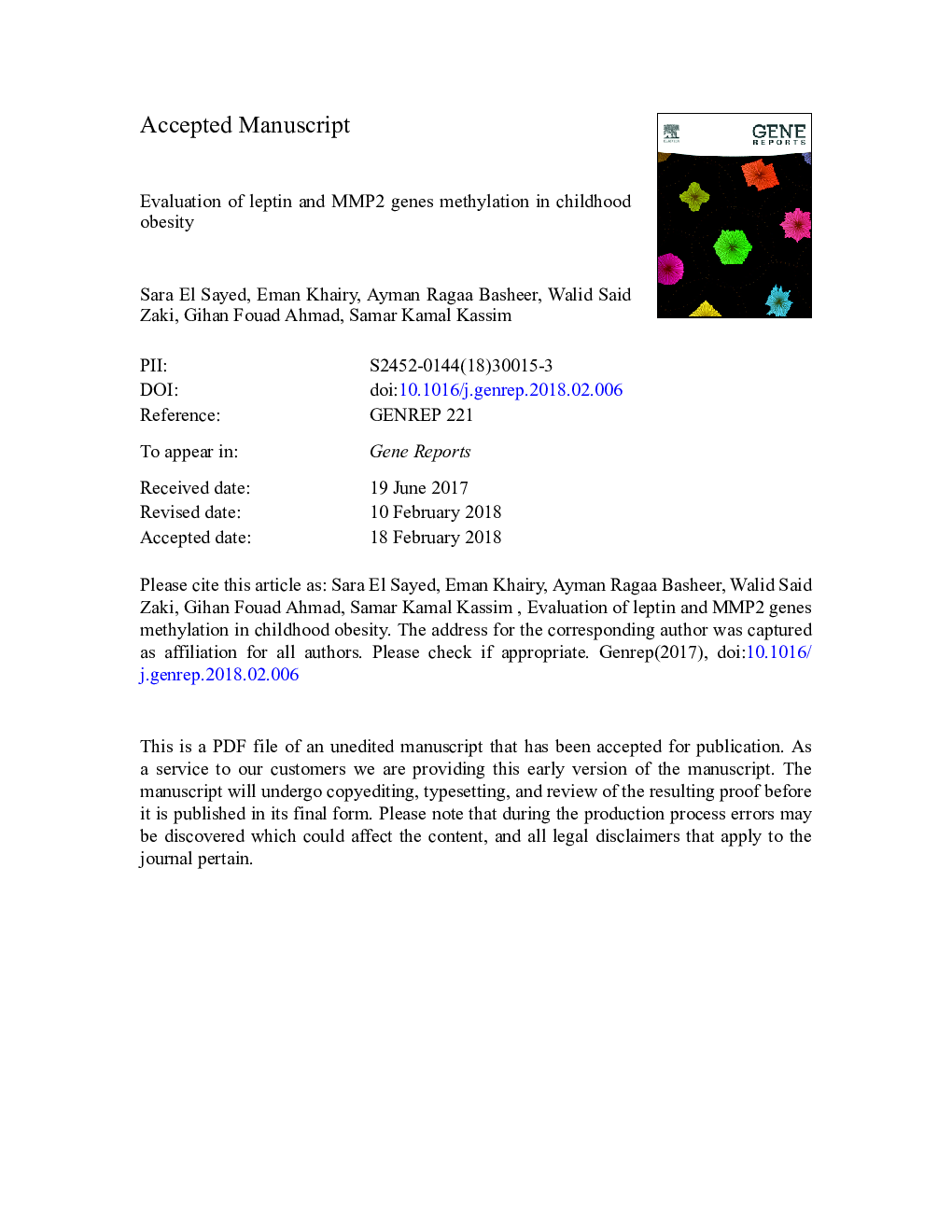| Article ID | Journal | Published Year | Pages | File Type |
|---|---|---|---|---|
| 8646212 | Gene Reports | 2018 | 28 Pages |
Abstract
Recent novel eras of research are opening for the effective management of obesity, in general and childhood obesity, in specific through gene and nutrient intake interactions, Nutrigenomics. The causes of obesity are complex and multifactorial. Here we investigated whether Leptin/MMP2 genes promoters' methylation were associated with childhood obesity. Folic acid level was measured by ELISA, methylation state within promoters of the selected genes in extracted DNA from blood samples was evaluated by methylation-specific PCR (MS-PCR). Obese children with high weight percentile showed a highly significant hypomethylation state in Leptin/MMP2 genes' promoters when compared to the obese follow up group after folic acid intake and to age-sex matched group with normal weight percentile, (pâ¯<â¯0.01). Furthermore, serum folic acid level was highly significant lower in obese children when compared to control group (pâ¯<â¯0.01). After folic acid supplementation for 3â¯months (300â¯Î¼g/ day), a high significant increased DNA methylation in promoters of both genes was achieved (pâ¯<â¯0.01). In conclusion, these observations sustain the hypothesis said that epigenetic modifications might underpin the development of obesity and related metabolic disorders. The findings also validate the use of blood samples and MS-PCR as a reliable and affordable methodology for the identification of epigenetic modifications that could be used as molecular markers to predict obesity risk. Additionally, specific DNA hypomethylation state associated with obesity may be improved by folic acid supplementations.
Keywords
DNA methyltransferasesMMP2DNMTsVCAM-1PGE2SAMROCAUCS-adenosylmethionineEpigeneticsWhite adipose tissueEnzyme-linked immunosorbent assayELISACirculatingChildhoodbody mass indexBMIMatrix metalloproteinase-2MethylationObesityarea under the curvevascular cell adhesion molecule-1BiomarkersNitric oxideProstaglandin E2WATreceiver operating characteristic
Related Topics
Life Sciences
Biochemistry, Genetics and Molecular Biology
Genetics
Authors
Sara El Sayed, Eman Khairy, Ayman Ragaa Basheer, Walid Said Zaki, Gihan Fouad Ahmad, Samar Kamal Kassim,
